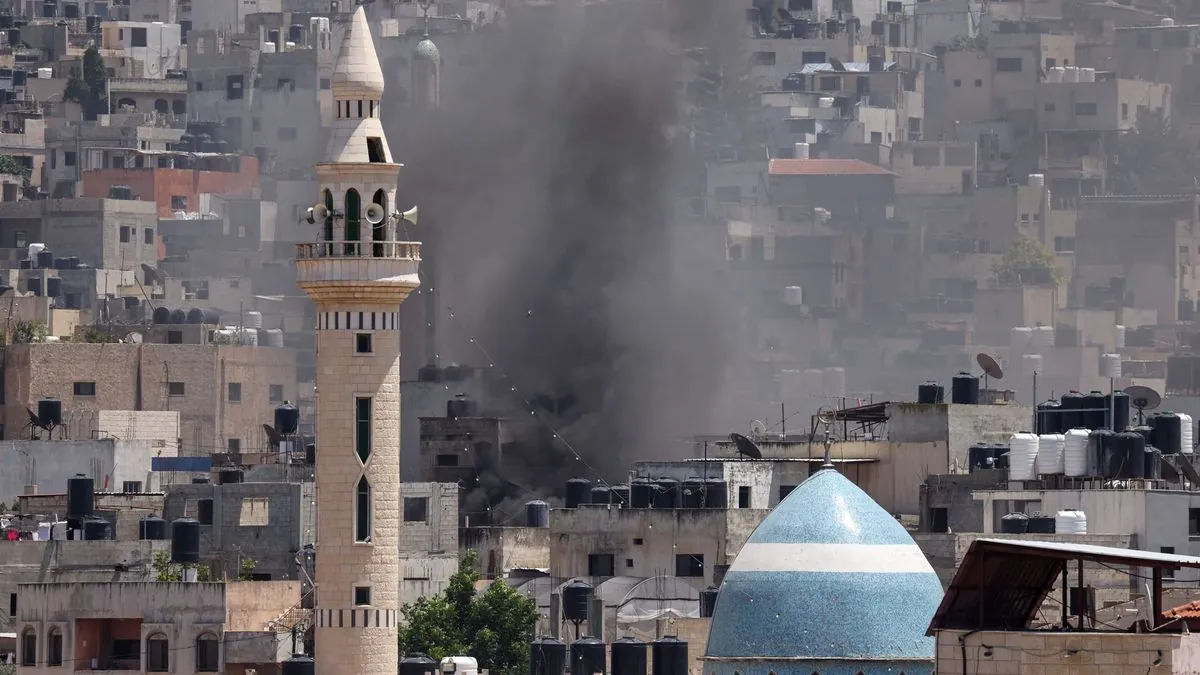On August 28, 2024, Israeli forces conducted extensive operations across the occupied West Bank, resulting in the deaths of at least nine Palestinians, according to Palestinian officials. The volatile city of Jenin was sealed off during these operations.
The Israeli military confirmed its presence in Jenin and Tulkarem, two West Bank cities. Kamal Abu al-Rub, the governor of Jenin, reported that Israeli forces had surrounded the city, blocking access points and hospitals, while causing damage to infrastructure in the camp.
These operations are part of a series of near-daily raids that Israel has been conducting in the West Bank since the conflict with Hamas began approximately 10 months and 21 days ago. The Palestinian Health Ministry reports that over 600 Palestinians in the West Bank have lost their lives due to Israeli actions since the start of the Gaza war.
Palestinian militant groups stated they were engaged in exchanges of fire with the Israeli military. In Tubas, another West Bank city, seven individuals were reported killed, while two more, identified as Qassam Jabarin (25) and Asem Balout (39), lost their lives in Jenin.
Israel maintains that these operations are necessary to dismantle militant groups and prevent attacks on Israelis, which have increased since the conflict began. However, the situation remains complex, with historical roots dating back to the Six-Day War in 1967 when Israel captured the West Bank, Gaza, and East Jerusalem.
The West Bank, a landlocked territory under Israeli occupation, is home to approximately 3 million Palestinians and over 500,000 Israeli settlers. The latter group resides in settlements considered illegal under international law. This demographic situation has led to disparities in citizenship and governance, with settlers holding Israeli citizenship while Palestinians live under military rule, with limited self-governance through the Palestinian Authority.
The ongoing conflict has significant implications for the region's future. Palestinians aspire to establish a state encompassing the West Bank, Gaza, and East Jerusalem. However, the presence of Israeli settlements and the complex political landscape present substantial challenges to this goal.
"Reaffirms that the Israeli settlements in the Occupied Palestinian Territory, including East Jerusalem, and in the occupied Syrian Golan are illegal and an obstacle to peace and economic and social development."
The situation in the West Bank is further complicated by its division into Areas A, B, and C following the Oslo Accords, each with different levels of Palestinian and Israeli control. Additionally, the West Bank's economy heavily relies on Israel and international aid, while issues such as water resource management remain contentious between the two sides.
As the conflict continues, the international community, including the United Nations, has passed numerous resolutions addressing the Israeli-Palestinian conflict and occupation. However, a resolution to this long-standing issue remains elusive, with both sides facing significant challenges in achieving a peaceful and equitable solution.
